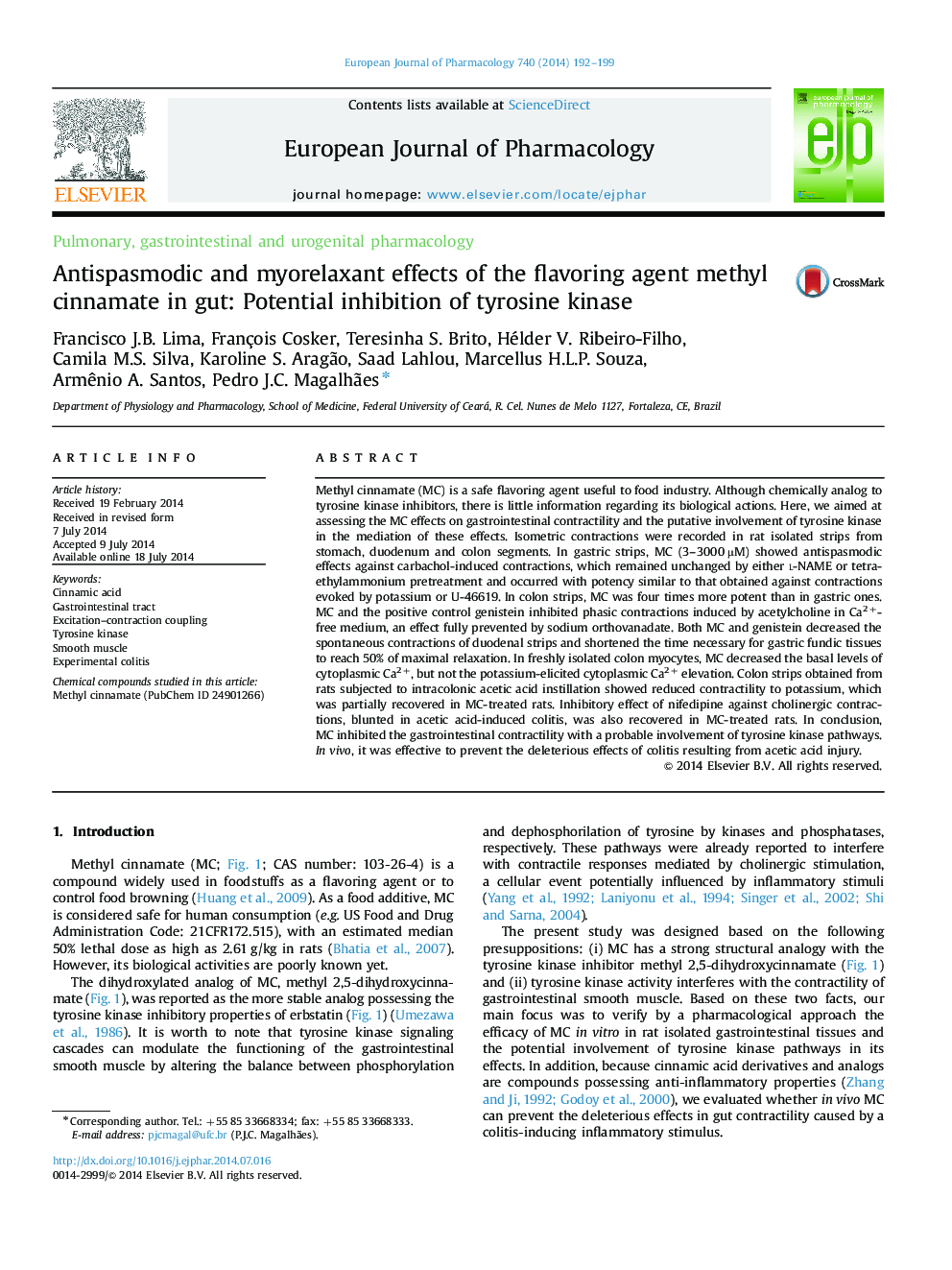| کد مقاله | کد نشریه | سال انتشار | مقاله انگلیسی | نسخه تمام متن |
|---|---|---|---|---|
| 2531661 | 1558941 | 2014 | 8 صفحه PDF | دانلود رایگان |
Methyl cinnamate (MC) is a safe flavoring agent useful to food industry. Although chemically analog to tyrosine kinase inhibitors, there is little information regarding its biological actions. Here, we aimed at assessing the MC effects on gastrointestinal contractility and the putative involvement of tyrosine kinase in the mediation of these effects. Isometric contractions were recorded in rat isolated strips from stomach, duodenum and colon segments. In gastric strips, MC (3–3000 µM) showed antispasmodic effects against carbachol-induced contractions, which remained unchanged by either l-NAME or tetraethylammonium pretreatment and occurred with potency similar to that obtained against contractions evoked by potassium or U-46619. In colon strips, MC was four times more potent than in gastric ones. MC and the positive control genistein inhibited phasic contractions induced by acetylcholine in Ca2+-free medium, an effect fully prevented by sodium orthovanadate. Both MC and genistein decreased the spontaneous contractions of duodenal strips and shortened the time necessary for gastric fundic tissues to reach 50% of maximal relaxation. In freshly isolated colon myocytes, MC decreased the basal levels of cytoplasmic Ca2+, but not the potassium-elicited cytoplasmic Ca2+ elevation. Colon strips obtained from rats subjected to intracolonic acetic acid instillation showed reduced contractility to potassium, which was partially recovered in MC-treated rats. Inhibitory effect of nifedipine against cholinergic contractions, blunted in acetic acid-induced colitis, was also recovered in MC-treated rats. In conclusion, MC inhibited the gastrointestinal contractility with a probable involvement of tyrosine kinase pathways. In vivo, it was effective to prevent the deleterious effects of colitis resulting from acetic acid injury.
Figure optionsDownload high-quality image (151 K)Download as PowerPoint slide
Journal: European Journal of Pharmacology - Volume 740, 5 October 2014, Pages 192–199
